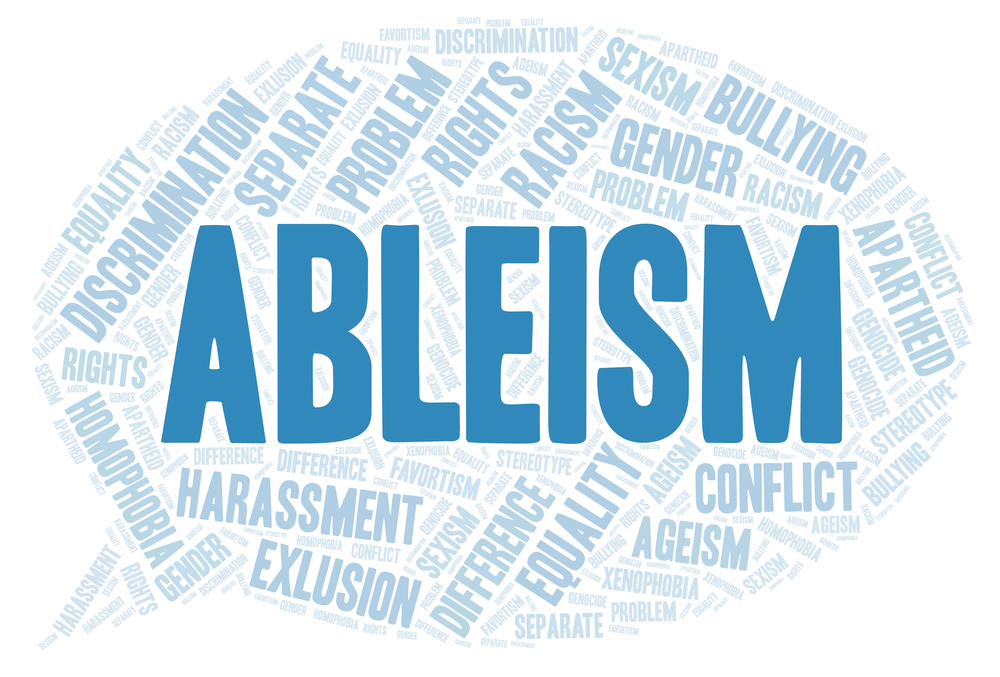Despite aiming to improve client well-being, mental health professionals and systems continue to regularly engage in dehumanizing practices that perpetuate ableism. This leads to stigma, avoidance of treatment professionals, and worse mental health outcomes.
In a new article, Owenz, Aydemir-Döke, and Spencer suggest that introductory mental health courses (often called “Abnormal Psychology”) are an important place to intervene in this counterproductive process. They present six strategies that challenge pedagogical conventions in Abnormal Psychology courses to decrease ableist behaviors in upcoming generations of psychologists.
“One of the most frequently taken psychology courses in undergraduate education is a survey course of mental health diagnoses, attracting a variety of outside majors including pre-med, nursing, social work, and education students. Therefore, it represents a critical foundational point to contextualize mental health diagnoses within an anti-ableist framework,” the authors explain.
“However, without a critical perspective, this course could reinforce stereotypes and ableist beliefs. A mental health diagnosis has and continues to be associated with dismissal; dismissal of one’s experience, one’s desires, one’s autonomy to choose treatment, and one’s ability to direct one’s own life path.”
 The authors suggest that psychiatric and counseling psychology pedagogy can learn a great deal from disability studies. They present information on disability identity and how the social model of disability differs from the medical model of disability. They then provide six suggestions derived from applying principles of disability movements to the present problem of ableist teachings in mental health fields.
The authors suggest that psychiatric and counseling psychology pedagogy can learn a great deal from disability studies. They present information on disability identity and how the social model of disability differs from the medical model of disability. They then provide six suggestions derived from applying principles of disability movements to the present problem of ableist teachings in mental health fields.
According to Owenz, Aydemir-Döke, and Spencer, the medical model views disability as “a problem residing within an individual that requires treatment.” In contrast, the social model “highlights the disabling impact of the environment, inclusive of inaccessibility and discrimination, and contextualizes disability as diversity.”
They credit psychiatric survivor group advocacy with many of the humanizing shifts in psychiatric practice and discuss evidence that disability identity and reclaiming stigmatizing terms can buffer ableism. Owenz and colleagues suggest that the history of this advocacy and humanizing methods suggested by psychiatric survivor groups receive little to no attention in typical undergraduate and graduate courses.
Six Anti-Ableist Strategies for Abnormal Psychology
The primary purpose of the article is to present six suggestions for reducing ableism in Abnormal Psychology courses. They are listed below with additional relevant context:
- Teach the social model of disability as an organizing framework using small group discussion and application to college-related examples.
- Rename the class either officially or as an exercise in which students develop a name more accurately to recognize the humanity of people with mental health challenges. The authors suggest “Mental Health Diagnoses” as a less stigmatizing and content-accurate course name.
- Complicate the categorization dichotomy of disorders or present them on a continuum.
The authors caution that it is important to decrease the psychological distance students perceive between themselves and those with psychiatric diagnoses without minimizing the distress and impact of symptoms:
“Disorders are categorically different from normative experiences, and the co-opting of psychiatric disorder terminology to describe everyday experiences (describing mood swings as bipolar or a preference for tidiness as OCD) can oversimplify diagnoses, minimize impairment, prevent those with clinically significant disorders from seeking treatment, and increase mockery.”
- Start with positive disability identity for each diagnostic class and provide examples of how identifying with diagnoses can have positive effects, such as acceptance, self-understanding, and positive self-image.
- Center disability representation and personal stories by including memoirs and videos from clients in their class assignments
- Emphasize discourse on consumer rights and critiques of dehumanizing mental health treatment practices (e.g., using restraints on clients, othering and hierarchical language, etc.)
They conclude that disability studies contrast sharply with the “divisive us/them ideology” of the medical model and that “anti-ableist content on mental health diagnoses can reshape societal views on disability, stigma, diagnoses, and treatment.”
There are two unaddressed contextual pieces that could interfere with using their suggestions to decrease ableism in mental health settings.
First, Owenz, Aydemir-Döke, and Spencer discuss disability models in isolation. Ableism has several unique impacts that were not addressed. At the same time, what it shares with other forms of discrimination in mental health was written about heavily without mention of other marginalized groups. Ableism is frequently used to perpetuate stereotypes of marginalized groups as inferior by asserting that their healthy states of being are forms of mental illness. Some identities are even conflated at a societal level with being psychologically unwell, making ableism and other forms of discrimination linked well before students enter the classroom.
Examples of connections between marginalization and diagnosis include but are not limited to a) conversion therapy for LGB+ people, b) assertions of “cultural deprivation” for Black, Latino, and Indigenous populations, c) fatphobia and assumptions of unhealthy/morally bereft/lacking psychological discipline for people who appear to have larger BMI, d) previous applications of “gender dysmorphia” to all transgender and two-spirit people, and e) “hysteria” for women.
The advocacy of these populations has also led to humanizing changes in diagnostic criteria and treatment: women in conceptualizing borderline personality identity, Black people in conceptualizing trauma, and the LGBTQIA+ community in removing diagnoses related to sexual orientation from the DSM. The buffering effect of reclaiming slurs is also widely shared among people facing discrimination (e.g., “queer,” “slut,” the N-word when used by Black people).
Secondly, some psychiatric practitioner fields primarily involve medical and biological training rather than attending psychology undergraduate courses or non-medical graduate schools. Psychiatrists and nurse practitioners make up a smaller percentage of mental health providers but are frequently in positions of more power. This is especially true in hospitals and larger organizations serving high volumes of clients. This makes those with medical training particularly important as a site of anti-ableism intervention.
In summary, it is very important to use methods from disability studies to address ableism early in mental health training. While some courses are already beginning to use disability-inclusive frameworks (e.g., the ADDRESSING framework and ACA Competencies, this article highlights the importance of more institutions using frameworks like these.
However, a disability framework is not enough. Many of the article’s suggestions could and should be applied to disability and other stigmatized identities in clinical training. For instance, all of the groups that have pioneered social models and have helped humanize mental health professions could be discussed in courses. The combination of frameworks and histories of each advocacy group (not just disability) would likely provide a more humanizing change to mental health professionals’ attitudes through introductory clinical courses. This article offers several practical ways to intervene with ableism in introductory courses and invites others to create more.
****
Owenz, M. B., Aydemir-Döke, D., & Spencer, D. B. (2024). Normalizing Abnormal Psychology: An Anti-Ableist Approach. Teaching of Psychology, 0(0). https://doi.org/10.1177/00986283241259744 (Link)















just saying, changing the name of the course from “Abnormal Psychology” to “Mental Health Disorders” does not seem like much of an improvement, considering all of the issues with the DSM. maybe “Varying Psychological Experiences” might make more sense or who knows?
Report comment
Thank you for this topic. Just when I thought I understood Ableism, now I’m not sure that I do. I understood Ablesim to be in reference to coercing people to take neuroleptics in disregard of how harmful and counterproductive are the adverse effects. In other words Ableism is the dynamic that allows the will of the prescriber, which is shaped by conflicts of interest that do not suit the patient, to take precedence over the best interests of the patient; the patient is not able to do well , to have a good outcome within this paradigm of treatment response. Such was my impression after reading Chaya Grossberg’s use of the term.
Report comment
This is very confusing. Are we being asked to promote new ways of accepting diagnostic labels that are fundamentally unscientific and damaging, and to believe this is somehow a radical new approach? Why? Is the ‘critical psychiatry’ movement actually going backwards?
Report comment